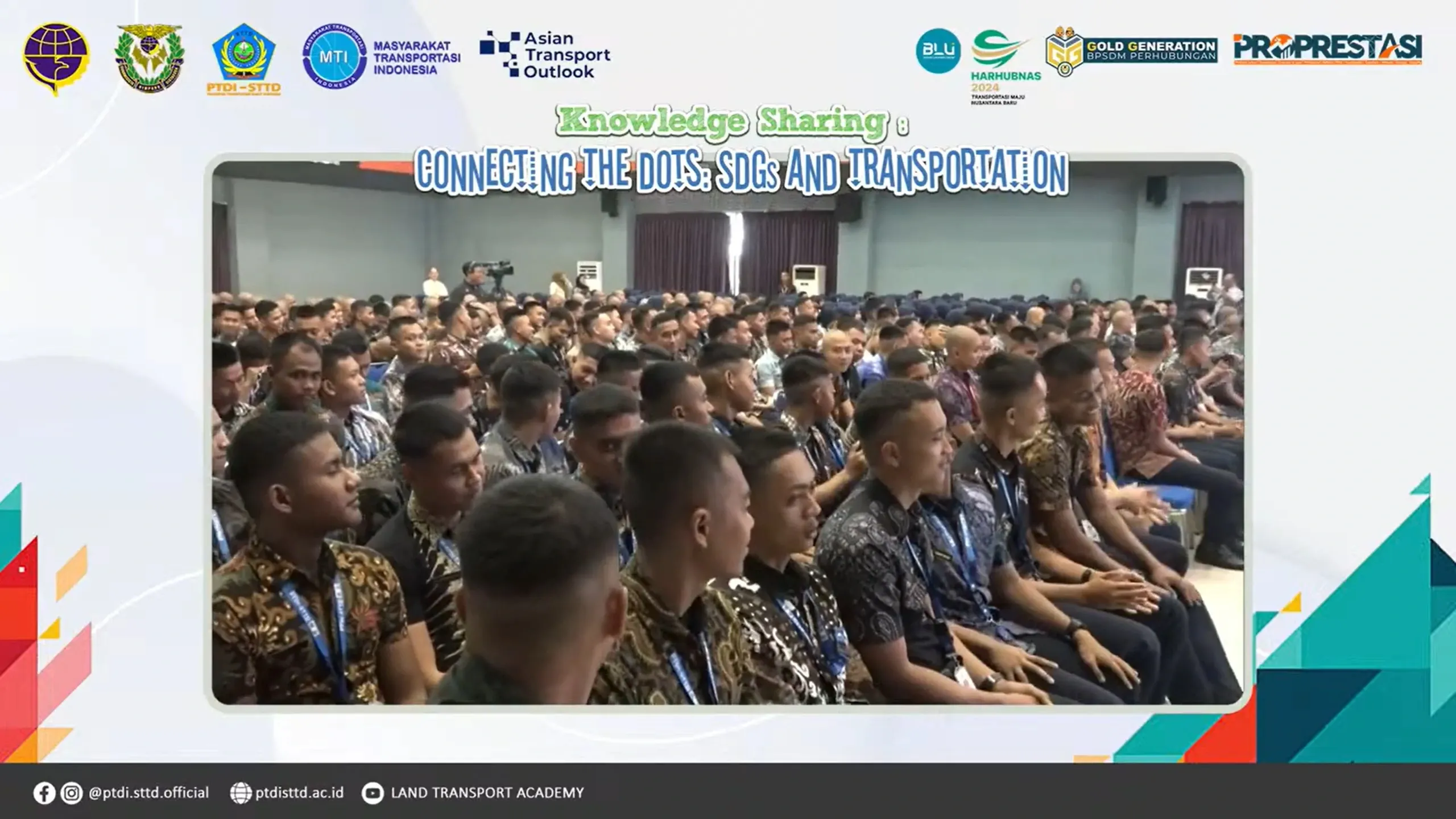Connecting the Dots: Sustainable Transportation and the Sustainable Development Goals

The transportation sector's role in achieving the United Nations' Sustainable Development Goals (SDGs) is crucial. This fact has been showcased in the first installment - "Connecting the Dots: Sustainable Transportation and the Sustainable Development Goals" of the webinar series titled "Shifting Towards Sustainable Development: A Webinar Series on Transportation and the Sustainable Development Goals (SDGs)." This series, organized by the Politeknik Transportasi Darat Indonesia - STTD in collaboration with the Indonesian Transport Society ( Masyarakat Transportasi Indonesia), and the Asian Transport Outlook brought together experts, to explore the pivotal role transportation plays in sustainable development.
The Asian Transport Outlook (ATO) delivered a presentation which focused on the describing Asia’s status vis-à-vis the fruition of the transport-relevant SDGs.Mrs. Indira Darmoyono, Chair of the Environmental and Energy Transportation Forum of the Indonesian Transportation Society, discussed the role of sustainable transportation in environmental conservation and energy efficiency. Mr. Yudi Karyanto, a Lecturer at the Land Transportation Study Program at Politeknik Transportasi Darat Indonesia-STTD, presented on the challenges and opportunities in promoting sustainable transportation systems. The keynote speech as delivered on behalf of Mr. Suharto,
Director of Road Transportation at the Directorate General of Land Transportation, outlined Indonesia's commitment to sustainable transport policies, emphasizing the integration of cleaner energy and safety in transportation.
ATO’s presentation was delivered by Alvin Mejia, Co-Team Lead of the ATO, and the presentation focused on the following themes:
- Transport and the Economy: The sector contributes significantly to GDP but has seen slower growth post-2015. Employment in the transport sector is growing, but female representation remains low.
- Transport Infrastructure: Asia's road infrastructure is expanding but lags behind global averages. The motorization rate is growing rapidly, outpacing infrastructure development. Rail infrastructure has expanded but remains uneven across regions.
- Urban and Rural Access: A significant access gap exists, with 1.8 billion people in Asia lacking adequate transport infrastructure. Urban residents have limited access to public transit, while rural areas face challenges in all-season road access.
- Transport and Energy: Transport energy consumption growth has slowed, but fossil fuels still dominate, with a slow transition to renewables. Electric mobility is rising, but grid carbon intensity remains a concern.
- Transport and Climate Change: Transport emissions in Asia contribute significantly to global CO2 levels. There is an increase in climate hazards affecting transport infrastructure.
- Road Safety: Progress in reducing road crash fatalities has slowed since the SDGs were adopted.
- Take-aways: Sustainable transport requires a "multi-modal, multi-dimensional, multi-participatory, and multi-scalar" approach, with no single solution but an optimal mix of measures for sustainability.
The event was well attended with more than 700 participants (onsite and online). The recording of the webinar is accessible through the Indonesian Transport Society YouTube channel at https://www.youtube.com/live/9DLvmCN7ltQ. The next webinar is planned to be held on October 25, 2024